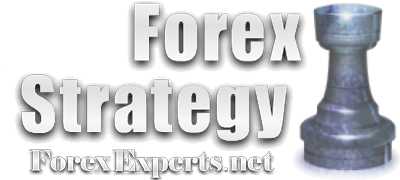Trade Strategies
♞ Contracts for Difference (CFDs) and Trading Strategies
The best trading strategy is the one that matches your individual risk tolerance and available time.

What are CFDs?
CFDs provide a simple and efficient way to trade global financial markets, including Forex, equities, cryptocurrencies, and commodities. A CFD contract mirrors the price movements of an underlying asset, allowing investors to trade in both directions.
Categories of CFD Trading Strategies
Many people expect there to be a single best trading strategy that guarantees success for everyone. However, that’s not true—the best strategy is the one that fits your individual risk profile. There are dozens of different CFD trading strategies designed to suit all kinds of risk tolerances.
Main categories of CFD Trading Strategies:
-
Automated-Trade Strategies {» More about automated Forex trading}
-
News-Trading Strategies
-
Hedging Strategies
-
Zone-Trading Strategies
-
Pairs-Trading Strategies

Trading Forex and Fundamental Analysis
Fundamental analysis is a key approach to investing that aims to predict how markets and asset prices will perform by carefully studying both current and past economic data. This method involves analyzing a wide range of factors, including economic metrics like GDP growth, inflation, interest rates, job statistics, and consumer confidence. It also takes into account industry trends and global political events, all to help investors make informed decisions focused on long-term success.
🎯 Introduction to Forex Fundamental Analysis
Forex fundamental analysis is a method used to predict future currency exchange rate fluctuations by carefully examining the economic, financial, geopolitical, and environmental forces that affect a nation's economic health and monetary policies. This approach requires ongoing monitoring of crucial macroeconomic data—most notably interest rate changes and market expectations, which are the primary influence—along with inflation measures like CPI and PPI, GDP growth reports, employment statistics such as the US Non-Farm Payrolls, trade balances, retail sales, manufacturing indices (PMIs), and consumer confidence levels.

Trading Strategies –The 3-Elements Concept
Applying a strategy is everything when trading the global financial markets. The implementation of the right trading strategy is what truly separates winners from losers in the long run.
“Trading luck eventually ends, and that’s when a trading strategy begins.”
Applying a strategy means building a system that always tells you what to do next. If you want to become a profitable trader, you must incorporate these three elements into every trading decision. Together, these elements form a complete trading strategy.
♜ The 3 Elements of a Trading Strategy
A trading strategy has three main elements:
📈 1st Element: Asset Allocation / Trend Identification
The first element involves selecting the right asset to trade and deciding whether to go long (buy) or short (sell). The trend evaluation must always align with the timeframe you are trading. For example, if you are a day trader, evaluating long-term trends is not relevant.
Alternatively, you can determine the trend in any timeframe using this definition:
⬆️ Rising Trend: A trend is rising when a local high is higher than the previous high, and at the same time, the recent low is higher than the previous low.
⬇️ Falling Trend: A trend is falling when a local low is lower than the previous low, and at the same time, the recent high is lower than the previous high.

🕒 2nd Element: Trading Signals and Timing
After the asset allocation and trend evaluation process, the second element involves selecting the timing to trade—that is, deciding when to buy or sell the chosen financial asset. At this stage, you should use an additional indicator that confirms the trend and provides trading signals. A trading signal indicates the entry and exit points for a potential trade.
🔗 There are commercial trading signals available for a monthly subscription fee: ► Compare EA Trading Systems | ► EA Builder Systems
 Carry Trade Strategy
Carry Trade Strategy
Carry trade is a Forex trading strategy that involves borrowing money at a low interest rate and investing it in assets with higher returns.
Explaining Carry Trade
Currency carry trade is a strategy that involves selling a currency with a relatively low interest rate while simultaneously buying a currency with a relatively high interest rate. Forex carry traders aim to capture the interest rate differential between two currencies, which can be significant depending on the leverage they use.
- Investors borrow in a low-interest-rate currency and invest in a higher-interest-rate currency, profiting from the interest rate differential (the "carry") between the two.
Typically, investors borrow money in Japanese yen or Swiss francs, two currencies that traditionally offer very low interest rates, close to zero. They then use these funds to open long positions in currencies with higher interest rates, such as the Canadian Dollar, New Zealand Dollar, and Australian Dollar.
About Interest Rates
Interest rates have a powerful impact on the Foreign Exchange market. Any rate change by one of the eight major global central banks can disrupt the Forex market, with surprise changes having an even greater effect.
Interest rate adjustments respond to new economic conditions, and every policy aims to stabilize the economy. Interest rate policies serve two main purposes: to stimulate growth or to reduce inflation.
(i) Decreasing interest rates aims to boost growth and lower unemployment.
(ii) Increasing interest rates aims to reduce inflation.
Interest rates move in trends because the economy cycles through periods of growth and contraction, moving upward and then backward. As shown in the table below, major central banks implement different interest rate policies because monetary authorities have varying goals, and each economy has its own unique characteristics. Japan and Switzerland traditionally offer low interest rates.
High Frequency Trading (HFT) is a form of electronic trading that uses complex algorithms to analyze and evaluate multiple markets simultaneously. Depending on market conditions, HFT systems execute tens of orders within seconds.

⚡ The HFT Domination in the US
High-frequency trading systems open and close positions in fractions of a second, creating what are called million-second markets. These fast markets are extremely liquid and can significantly influence all major equity markets. It is estimated that computer-based high-frequency trading accounts for around 50% of the total US stock-trading volume, with some estimates exceeding 65%. High-frequency trading has become very popular in recent years, with hundreds of start-up companies worldwide focusing exclusively on capitalizing on opportunities in this lucrative market. In the US alone, the high-frequency trading industry is estimated to be worth about 300 billion USD. Overall, more than 20,000 firms in the US specialize in fast-paced computerized stock trading programs. According to Deutsche Bank, the key players in the HFT industry include:
i) Multi-service firms: Citigroup and Goldman Sachs
ii) Hedge funds: Citadel and Renaissance Technologies
iii) Trading firms: Getco, Optiver, and Tradebot
Why does HFT make investors and regulators skeptical?
On May 6th, 2010, the Dow Jones Industrial Average plunged 600 points in just five minutes—a phenomenon known as the "Flash Crash." After dropping 400 points, the DJIA recovered within 20 minutes and closed the day about 3.0% lower. High-frequency trading was blamed for this unusual market behavior, and since then, HFT has caused widespread skepticism about market stability and the future.
The Correlation Between US Bonds Yields and USDCHF
U.S. bond yields have historically shown a strong correlation with the USD/CHF currency pair.
Since 1990—and especially after 2007—global financial markets have increasingly functioned as a unified investment environment. This interconnected system allows capital to flow freely in pursuit of the most favorable risk/return balance. When a significant shift in the risk/return profile occurs in one market, other markets tend to respond quickly in an effort to restore equilibrium.
🏛️ U.S. Bond Yields: A Brief Historical Perspective
U.S. Treasury yields have mirrored major economic cycles—rising and falling in response to inflation, financial crises, and monetary policy shifts. Today’s yields, with the 10-year at 4.35% and the 30-year at 4.87%, are near their highest levels in over a decade, yet still fall short of long-term historical norms. The continued inversion of the yield curve reflects investor anxiety over potential recession risks, despite the Federal Reserve’s cautious stance.
Historical Milestones
-
1970s–1980s Inflation Era: Bond yields soared above 15% amid oil shocks and runaway inflation.
-
Post-1982: A long-term downtrend began as inflation was tamed and policy stabilized.
-
2008 Financial Crisis: Economic collapse drove yields to historic lows—10-year notes fell to around 2.32% between 2011 and 2012.
-
2022–2023 Inflation Resurgence: Rapid Fed rate hikes in response to rising prices pushed the 10-year yield up to 4.81%, marking a post-crisis peak as of 2025.
📈 The Relationship Between U.S. Bonds and USD/CHF
The underlying mechanisms of the bond and Forex markets are closely related, as both are strongly influenced by interest rate levels. Any changes in actual interest rates or expectations surrounding them lead to a reevaluation of risk and return across both asset classes.
U.S. bond yields have shown a historical correlation with USD/CHF. This is largely because the Swiss Franc—like the Japanese Yen—traditionally offers very low interest rates. When U.S. interest rates rise, investors are incentivized to go long on USD/CHF to capitalize on carry trade opportunities. In simple terms, they buy the U.S. Dollar and sell the Swiss Franc in order to benefit from the positive overnight interest rate differential.
Subcategories
Trade Strategies for Beginners
Beginner's Guide to Trading Strategies..
Rating Formula Comparisons
Trade Strategy
Forex Brokers
💡 Forex Ratings
 Forex Broker Ratings Powered by the Next-Generation RatingFormula 5.0 (?)
Forex Broker Ratings Powered by the Next-Generation RatingFormula 5.0 (?)
The RatingFormula series, developed by George M. Protonotarios, is designed to bring objectivity to online corporate ratings. In the future, search engines and various applications are expected to adopt similar rating algorithms to accurately assess the true value of online corporations for users and rank them accordingly in search results.





